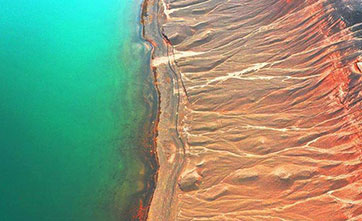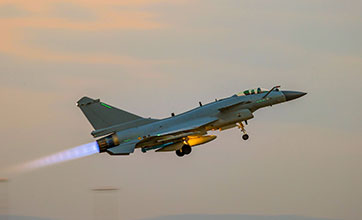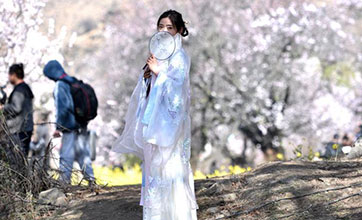Chinese people pay respect to martyrs who sacrificed in China-India border clash ahead of Tomb-sweeping Day

"Come to my dream, child," relatives of martyr Wang Zhuoran, a People's Liberation Army soldier who sacrificed himself in China-India border clash in June 2020, cried at Wang's tomb located in the martyr's cemetery in Luohe, Central China's Henan Province, on Saturday, the day before China's traditional Tomb-sweeping Day.
It is the first Tomb-sweeping Day - during which Chinese people visit the graves of the deceased and conduct memorial activities - after Wang, a 24 year-old PLA soldier, and other three soldiers sacrificed during the border clash.
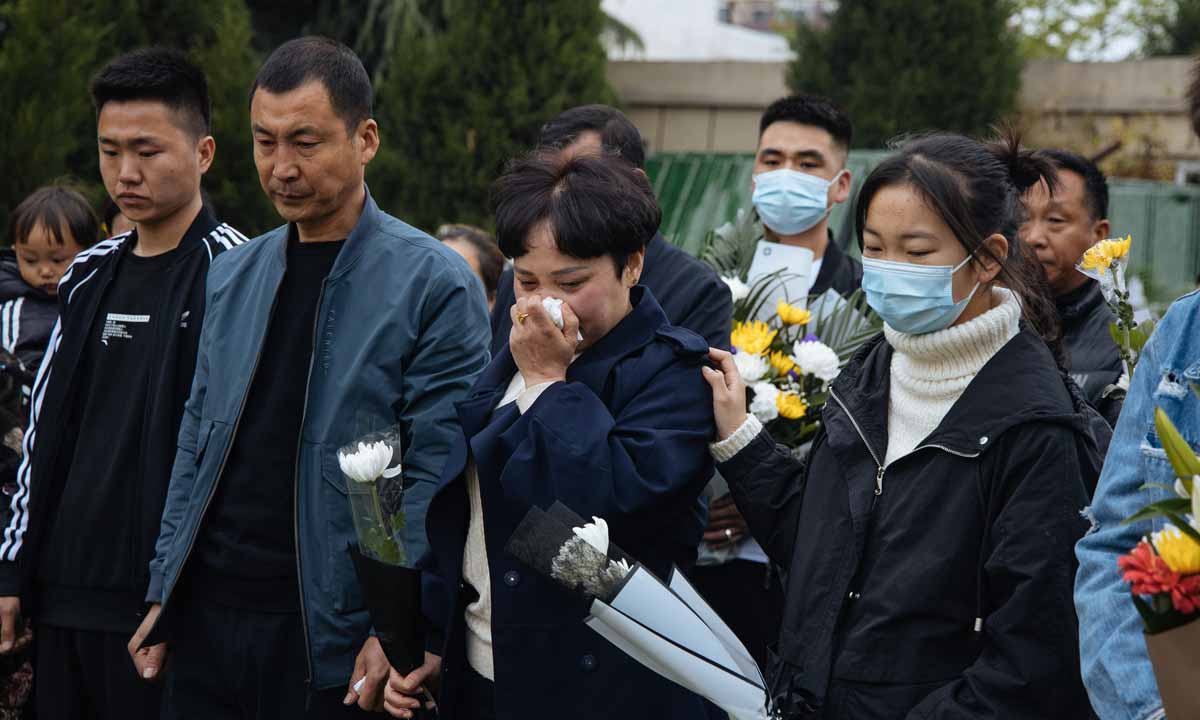
Photo: Li Hao/GT
Wang's mother Yang Suxiang, 51, swept the tombstone of Wang with a towel, took out apples, cakes and boxes of drinks and opened the packages before putting them in front of the tombstone.
"Do not worry, son, we will take care of your grandmother and ourselves, we will continue to live our life well," Yang said while crying.
Wang Hengzhao, Wang Zhuoran's father, stood silently beside his wife with teary eyes.
Wang Zhuoran's grandmother, who is in her 70s, is still unaware about her grandson's death.
Wang Hengzhao told the Global Times that the grandmother once had thrombosis in her brain and is not in very good health condition. The family decided not to tell her about Wang Zhuoran's death in case she could not take it well.
She keeps asking about her grandson. We can only make excuses to keep her calm like saying he could not come back due to the epidemic, or he is busy with missions in the army, Wang Hengzhao said.
Wang's parents came to the cemetery with a company of dozens of family members. Before they came, streams of local students, police, residents and villagers from Wang's home village, had gathered at the square of the cemetery early Saturday to pay respect to Wang.
"I came here voluntarily to pay my respect, we are proud of him," a Luohe teacher surnamed Zhi told the Global Times.
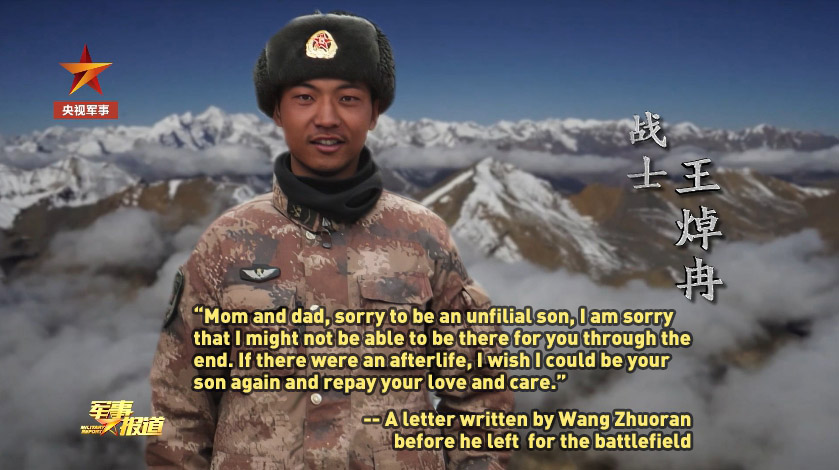
Wang Zhuoran
Born in the same year with Wang in 1996, Zhi said he regretted that he did not join the army. "I believe if I were him, I would do the same thing as Wang Zhuoran did."
About 60,000 people have visited the cemetery to pay respect since the Chinese authorities officially revealed the death of Wang and his other three colleagues in February, working staff at the cemetery told the Global Times on Saturday.
"Thank you for your sacrifice to protect us!" read a message written by an anonymous visitor on the message board of the Luohe cemetery.
Wang's application for battle assignments and his farewell letter to his family have also been displayed at the cemetery to the public since March 29, according to the working staff.
"I always miss the noodles Mom cooks, the fried cake Dad makes and so many other delicious foods grandmother makes... I might not be able to be there for you through the end. If there were an afterlife, I wish I could be your son again and repay your love and care," read Wang Zhuoran's farewell letter.
China in February unveiled details of the Galwan Valley conflict in June 2020 to pay respect to martyrs who sacrificed their lives to safeguard national sovereignty and territory and also to clarify the truth by revisiting the whole incident since India had hyped the casualties, distorted truth and tried to mislead the international community, according to the Chinese defense military.
Wang Zhuoran is one of the four martyrs who sacrificed their lives during the border conflict.
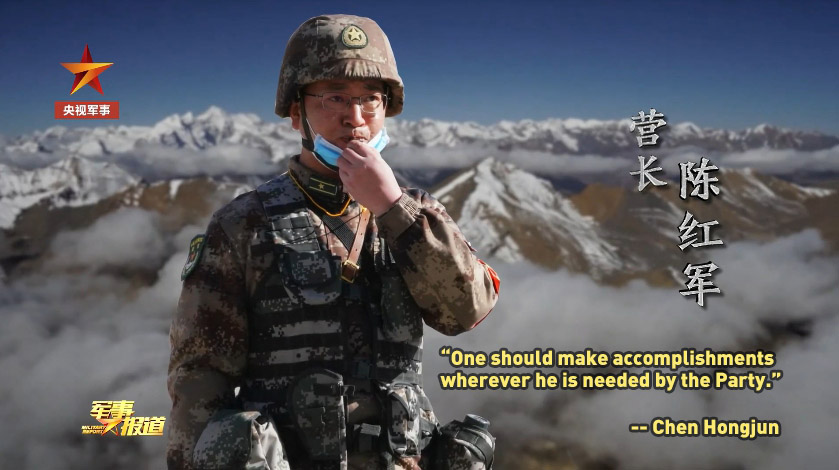
Chen Hongjun
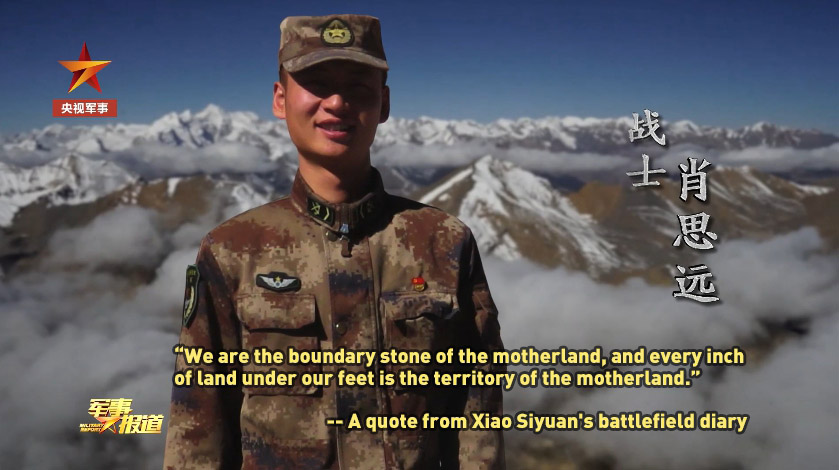
Xiao Siyuan

Chen Xiangrong
The other three were battalion commander Chen Hongjun and soldiers Xiao Siyuan, and Chen Xiangrong. They were born in 1987, 1996 and 2001, respectively.
As the Tomb-sweeping Day falls on Sunday, activities have been held in cemeteries in the martyrs' hometowns, where they are buried, to pay respect to them. Chinese netizens also left comments on social media platforms to commemorate and expressed gratefulness to them.
In Pingnan, East China's Fujian Province, people flock to the tomb of Chen Xiangrong and brought oranges, which was his favorite fruit.
In Lanzhou, capital of Northwest China's Gansu Province, Chen Hongjun's wife took their son to visit Chen on Saturday. It is the first time that the child met his father.
The tomb of Xiao Siyuan in Xinxiang, Henan, is also filled with flowers and messages from visitors.
Wang Zhuoran's parents also sent a message to other three martyrs which reads, "good child, you are the best!"
There are more than 20 million martyrs in China in the modern times but only about 1.96 million of them can be identified with names, the Xinhua News Agency reported on Saturday.
Photos
Related Stories
- Students pay tribute to martyrs ahead of Qingming Festival
- Chinese people's passion for travel runs high for Tomb-sweeping Day holiday
- More remains of martyrs to return to China from ROK
- China to honor personnel deceased in epidemic control as "martyrs"
- Xi pays tribute to national heroes at Tian'anmen Square
Copyright © 2021 People's Daily Online. All Rights Reserved.







